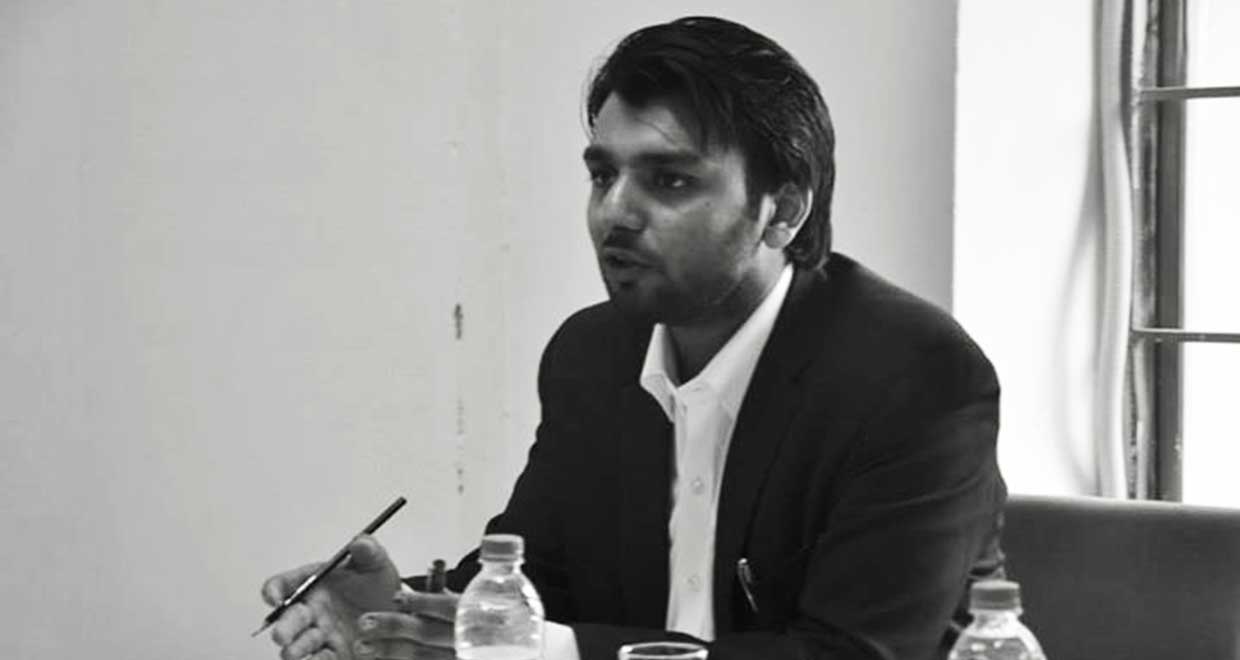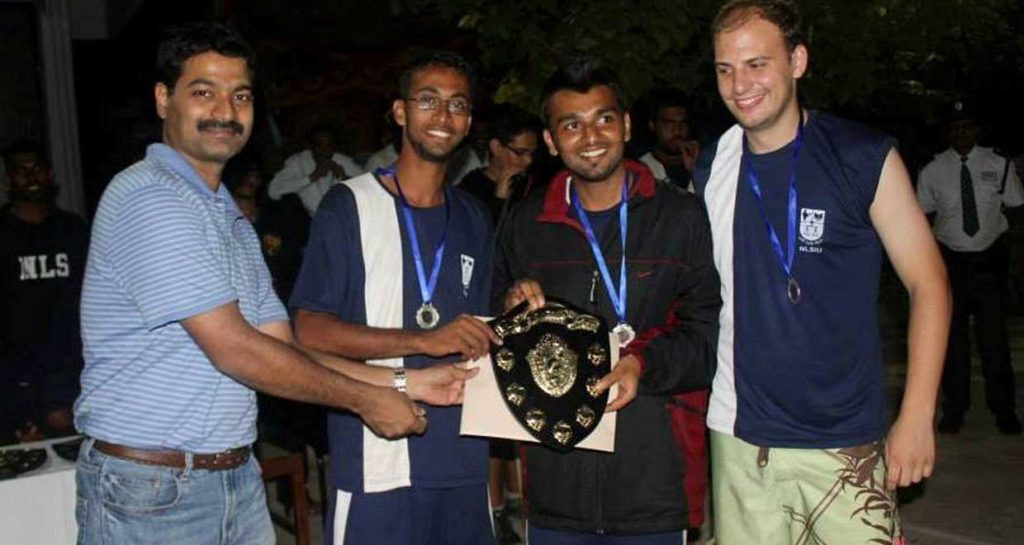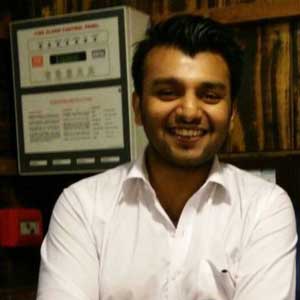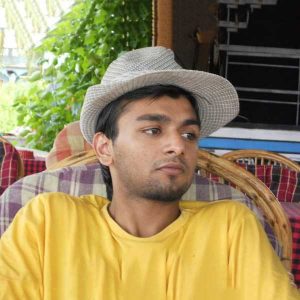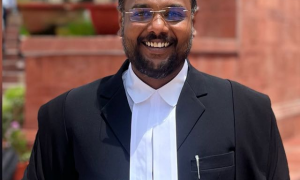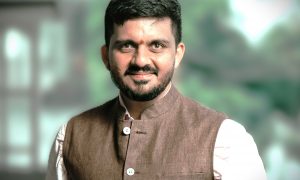Mayank is a graduate of the ’14 batch of the NLSIU. Following his multiple achievements on and off the field, he received the Alyosha Kumar Gold medal for excellence in sports and extra-curricular activities at his convocation ceremony. He went on to work with Adv. Yudhishtir Kahol as an associate/junior advocate and subsequently with RHA Legal as an associate.
Mayank’s interest in criminal litigation within the country, aided by his experience with pro bono work, gives him an added insight into the career path of any aspiring litigant. His multi layered exposure to evidentiary burdens, witness examinations, and all the other aspects of a complete trial from the grass root level.
In this interview Mayank talks to us about;
- His experience at NLSIU, both inside and outside the classroom
- Taking up litigation right after law school
- The importance of internships
- Work experience at RHA Legal
How would you introduce yourself to our readers? Tell us about life after NLSIU.
I am a legal practitioner and consultant based out of Delhi, working across forums with special interest in criminal litigation, both legal and non-legal aspects of criminology and pro bono work for people who can’t afford legal representation. I graduated from National Law School of India University, Bangalore and have been litigating ever since. Presently, I am working as an associate in the Litigation & Dispute Resolution vertical of RHA Legal, an emerging law firm at Delhi.
What motivated your decision to study law. Were there alternate career options you had considered?
The decision to study law was more a result of a process of elimination than a matter of choice. After studying science for two years in 10+2, I was fairly certain that I did not want to write the IIT-JEE exam, unlike everyone else in my class at School. My father is a practicing lawyer and I had a fair idea about what a lawyer does on a day-to-day basis. Unlike a major chink of the population (fed on a copious diet of dramatic and caricaturised versions of lawyers on-screen), who have seen lawyers as those sneaky people, who, with their underhand tactics, save the guilty and should not be messed with. I was lucky to have greater perspective in this regard. I believe, more than anything else, this privileged knowledge and insight into a lawyer’s life might be one of the key reasons behind so many second and third generation lawyers entering this amazingly empowering and engaging profession.
Tell us about your time at NLSIU. Any fond memories or anecdotes you would like to share with us?
At the risk of belabouring the obvious, I would say I had the time of my life at college. Not only because NLSIU is a very good academic institution but for the people and the work culture the place had and helped all of us imbibe. I was a very shy person before college; the place played an important role in shaping my personality, ideals, and value systems. I particularly relish the wonderful camaraderie, especially at display in hostels; all of us bound together through the chaos of project submissions and last minute exam readings, trying to beat some impossible deadlines and collaborative efforts on research projects for class.
While at university, you took a keen interest in sports. How did you manage to balance the academic rigours of the trimester system at NLSIU?
(Mayank captained the university cricket team, tennis team, squash team, badminton team and helped organize “Spiritus” which is the largest law school sports fest in India)
Due to my pre-college involvement and background in sports, my interest in organisation as well as participation in various sports came naturally. Moreover, NLS has a thriving sporting culture, and being surrounded by people who are juggling both ECAs (not limited to sports) and academics is inspiring in itself. Further, the insane effort put in all around the year by the Sports Committee, including the painstaking process of scheduling events around academic commitments of multiple batches, is no simple feat and actually helps ensure enthusiastic participation all year around without really jeopardising academics. I believe they are doing an incredible job in keeping the sporting tradition at NLSIU alive and I feel proud to have been part of it during my brief stay.
What would you advise a student who wishes to excel at sports too in law school, considering time management or risk of injuries are valid issues most students face at law school?
I believe that playing any kind of sport helps in acquiring the mental toughness to deal with the unpleasant situations you often face in your professional life, apart from keeping you physically fit, which I would say is critical especially in such a sedentary profession. More than anything else, I think sports reveal character and that’s why some friendships forged on the field during those crunch situations and the respect earned on the ground stay with you for times to come. As regards the second part, injuries are part of any sportsman’s life and with a variety of sports to choose from, an individual may choose the ones s/he feels comfortable to engage in.
Tell us about the internships you pursued while at university. How did you choose where to intern? What led you to start practising soon after graduation, considering a lot of your peers would have joined firms?
I was quite clear from the beginning that I was going to pursue litigation as a career. My internship choices were driven by this. I interned with various lawyers across courts and forums, including a lot of trial court experience. I tried to keep a wide base in the beginning which I later narrowed down to fields of specialisation. I just prefer litigation over corporate firm practice as I feel more comfortable in this role, which might be due to the different skill sets involved in the two.
How does one decide which Court to start practising in after graduating if one wishes to litigate. How necessary is it to have a mentor/guide at the start of your practise?
Frankly, I don’t think there is any right way of going about it. From the interaction I have had with my peers and seniors and my personal experience, I think a lawyer should just make the most of whatever he has to work with. I personally chose to start practising from the district courts right after graduation, which I continue to do till date, as I wanted to develop an understanding of legal procedures from the ground up. Moreover, given that I wanted to specialise in criminal law I didn’t really have a choice as the exposure to evidence and the various stages and facets of criminal trial can’t be obtained at appellate stage directly. I don’t know how important a mentor is but having someone who believes in you can be very helpful, especially when you come straight out of college. This assumes greater importance in a country like ours where practice and procedure can sometimes be so diverse that you tend to question if you were studying the right courses. I think feeling inadequate and lost in the initial phase is a very common phenomenon, so either find someone who helps you go through it or grow thicker skin!
You have worked extensively on criminal matters while interning and after graduation. What are the various opportunities here and what made you gravitate towards criminal practise?
After working on a variety of matters during my internships I personally found myself more inclined to work on criminal matters due to some personality traits, including, possibly, a flexible moral fibre. Other contributing factors in this decision were the enabling power of a criminal lawyer, the gravitas and immediate impact a good criminal lawyer has on lives. The cases you deal with are sometimes actually a matter of life and death- how many professions can you say that about? I also think my internships with Mr. Vikas Pahwa, Sr. Advocate and watching him in action in court had a lasting impact. Furthermore, my work at the chamber of Adv. Yudhishtar Kahol was particularly enriching and fulfilling; observing Kahol sir cross-examine witnesses and interpret evidence was a sublime experience and cemented my love for criminal litigation. The fact that both these counsels had dealt primarily anti-corruption matters, which generally involve generous volume of paperwork and an equally large number of witnesses to be examined, gave me amazing exposure to the evidentiary aspect of trial in a very short time for which I am indebted to both these offices.
Soon after graduating, you worked as a junior advocate for a year and then decided to join RHA Legal, who are relatively new. Tell us about RHA Legal, the kind of work they generally deal with and what made you join them.
RHA Legal is a start-up law firm which focusses on Intellectual Property Rights, Corporate advisory, and Litigation & Dispute Resolution practice. I am primarily attached to the Dispute Resolution vertical branch of the firm headed by partner Ajit Sharma, who does a lot of criminal litigation including white collar crimes apart from a diverse civil practice across various forums viz. Supreme Court, High Courts, NGT and Central Administrative Tribunal. Rajiv Kr. Choudhry heads the IPR team, which inter alai does some highly technical advisory work on patent law and copyright.
RHA Legal being a small firm, I have had the opportunity to work with both these teams and my experience here has been extremely fulfilling and enriching. The focus is on the creation of an extremely supportive and enabling work culture that has been built by the partners for everyone who works with them including the associates and the interns. As compared to a larger setup, I believe a smaller firm gives you ample opportunity to be involved in the problem solving process from the very beginning, and that too at multiple levels including client handling, issue spotting and strategizing. Thus, giving you better perspective, far greater responsibilities and a more hands-on experience, which can prove to be vital for any litigating lawyer.
What have you been tasked with in your tenure here? What is an average work day like in your life?
From the very first day of my joining the Firm, I have enjoyed a very broad base role which included sitting through client meetings, researching on legal issues, flagging legal propositions in the case at hand, lot of drafting opportunities and some face time in the Court as well. The level of faith reposed in me, especially with regard to quality of work entrusted to me, is tremendous and I consider myself fortunate to work in such an enabling setting with some very talented and supportive seniors and colleagues. The work hours are manageable and vary according to the volume of work.
Tell us about the Trial Courts at Delhi and your experience in working there. Why do you think it is an interesting avenue for graduates to pursue? Tell us about your experience with pro bono work.
Although Trial Court work is very exciting and in fact crucial for a criminal litigator, the biggest obstacle I faced is the massive chasm between the practice and what is taught at Law School. The one unique opportunity which a litigating lawyer has over all others, is the ability to make a difference at a very early stage. I have had the good fortune of working on some pro bono cases with Vertical Legal, a dispute resolution firm working out of Delhi. The firm has a steady real estate advisory practice, but has a dedicated team taking up pro-bono matters including a Sunday-only Legal Clinic imparting free of cost legal advice to all and sundry. I trust that apart from being a learning opportunity, it is a humbling and a supremely fulfilling experience. I have been involved in this work since my fourth year of law school and I must say I am very proud of what we have been able to accomplish since then. Some of the work we did was also reported recently in the media, including a piece in the reputed Caravan Magazine on a case relating to ill-treatment of migrant labourers in Punjab. This case also made me realise the extremely effective role that the media, and good journalism in general, can play by taking up socially relevant stories and contributing to the solution, which does not always lie in the legal sphere.
What are your goals for the immediate future?
I don’t have any elaborate goals for the near future. I would love to continue in my current setup and learn as much as I can in the process. Litigation, they say, requires patience and perseverance; I currently feel that I am stocking up on both.
What would be your parting message to our readers, especially those who wish to litigate?
They say, “Litigation is not a profession, it is a way of life” and with each passing day I am appreciating the aptness of this statement. Although I feel I am not old or wise enough to give advice, I will pass on something which a very wise man once told me- “Litigation involves industry, and lots of it. Don’t do it for the money, there are exponentially easier ways of making money 🙂”.

